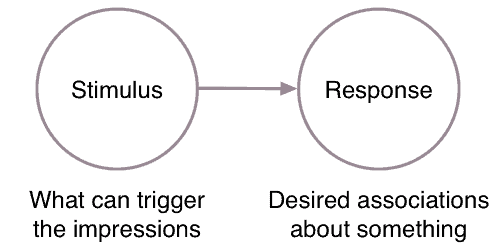
The role of mindfulness in working with people who have insecure attachments and how it can reduce addictive and compulsive behaviors, or impulsive actions, anger, etc. is important to understand. Mindfulness has been defined as “paying attention on purpose—in the present moment—without judgment.” This means that when we are mindful, we are not judging our thoughts or feelings, but just observing them without getting caught up in them. It also means that when we practice mindfulness, we see things clearly rather than through an emotional lens or filter. When a person is unable to be mindful, they often get stuck in negative cycles where their thoughts create emotions that lead to unhealthy behaviors (e.g., addiction).
Mindfulness is a skill that can be learned and practiced. It’s not about thinking positively or trying to control our thoughts, but it’s the opposite—mindful people are aware of what they’re feeling without judging themselves for having those feelings in order to keep their emotions from controlling them (easing anxiety). When we practice mindfulness, we are able to build our “mental muscles” and create distance between thoughts and actions. This recognition of thought versus immediate action is tremendously important.
This is why mindfulness can be so helpful in working with people who have insecure attachments. When a person has an attachment style that makes them feel unsafe, they are more likely to react impulsively or act out when feeling threatened because their need for safety overrides all other needs and emotions (easing anxiety). Mindfulness helps these individuals learn how to Stop, Take a pause, Observe and then Proceed (S.T.O.P).
When we practice mindfulness, it helps us to keep our emotions from controlling what happens in the present moment. When a person has an attachment style that makes them feel unsafe and they are more likely to react impulsively or act out when feeling threatened because their need for safety overrides all other needs (easing anxiety). Mindfulness can help these individuals.
This is also true with compulsive behaviors, or misuse of substances, even food. Mindfulness helps these individuals learn how to Stop, Take a pause Observe and then Proceed (S.T:O P). Mindful awareness is the ability to be aware in this moment without judgment or criticism; it’s about noticing what we are doing right now with acceptance rather than judgment – which can be difficult for people who have insecure attachments and use or misuse substances to feel good about themselves.
Mindfulness practice requires that the individual take time in the morning to sit, observe and build their focus and attention. This practice will help them to be more present in their life and less reactive. The individual can also use mindfulness throughout the day, for example, when they are feeling anxious or angry – it helps by giving a sense of calmness that is not dependent on external factors (easing anxiety). Mindfulness teaches people how to take time out from what’s happening around us so we don’t get caught up with our thoughts about things going wrong; this allows an opportunity where you might have been reacting without thinking if given enough space between stimulus-response connection which then gives room within ourselves as well.” Mindful awarenesses being aware “at this moment,” without judgment: noticing what you are doing “right now.”
Mindfulness is a practice that has been around for centuries and it’s something we can all do to help us live more in the moment. It teaches people how not get caught up with their thoughts about things going wrong, which allows an opportunity where you might have reacted without thinking if given enough space between stimulus-response connection.” Mindful awarenesses being aware “at this very minute,” or right now – noticing what one does at any particular time; observing oneself as though from outside of themselves”
Mindfulness has a role to play with people who have insecure attachments. It can reduce addictive or impulsive behaviors. It can also reduce anger or other impulsive actions. It is about being aware of what you are doing “right now.”
Mindfulness has been shown to be helpful in working with people who have insecure attachments because it reduces addictive and compulsive behaviors, which often stem from a person’s inability not to get caught up on their thoughts that go wrong when they feel threatened by something happening around them (stimulus-response connection). This allows an opportunity where the individual might react without thinking if given enough space between stimulus-response connections”
*Note: Mindful awareness means noticing at this very minute – observing oneself as though one was outside themselves; mindful attentional focus refers back into a momentary experience rather than onto past memories/future plans*
